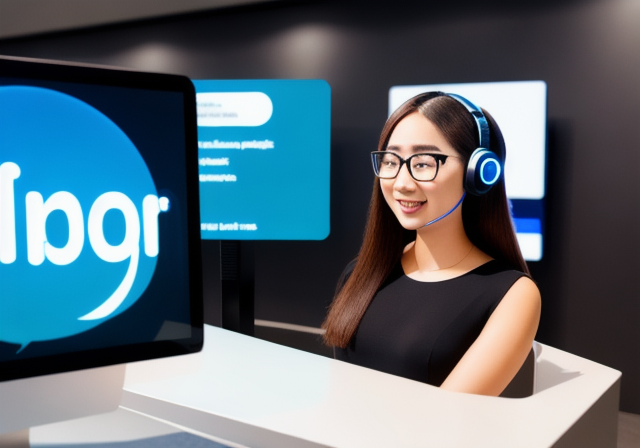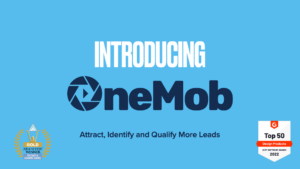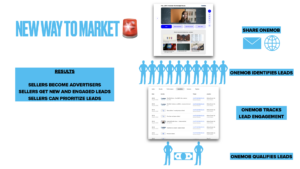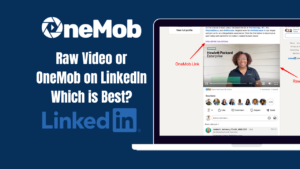In today’s fast-paced world, customers expect personalized and responsive communication. The rise of chatbots has revolutionized the way companies can interact with their customers, but what if we could take it a step further? That’s where chat GPT comes in. Chat GPT is a type of conversational AI that uses Generative Pre-trained Transformer 3 (GPT-3) technology to create human-like responses to customer queries. With chat GPT, businesses can provide a seamless customer experience, even when dealing with high volumes of inquiries.
Generative Pre-trained Transformer 3 (GPT-3) is a state-of-the-art language processing model that has taken the AI world by storm. It has the ability to generate human-like text, making it ideal for creating chatbots that can converse with customers in a natural and engaging way. This technology has the potential to revolutionize the sales industry, allowing businesses to provide personalized and responsive communication on a large scale.
So, why is chat GPT useful for sales? Firstly, it allows businesses to handle a large volume of customer queries efficiently. With chat GPT, customers can receive immediate responses to their inquiries, which helps to build trust and establish a positive customer experience. Secondly, chat GPT can provide businesses with valuable insights into customer behavior. By analyzing the data collected from customer interactions, businesses can gain a better understanding of their customer’s needs and preferences, allowing them to tailor their sales approach accordingly.
Thirdly, chat GPT can save businesses time and money. By automating the customer service process, businesses can reduce the workload on their sales teams, allowing them to focus on other important tasks. Additionally, chat GPT can operate 24/7, providing customers with support around the clock. This means businesses can provide exceptional customer service, regardless of the time of day or night.

Overview of Chat GPT
As businesses aim to provide more personalized and efficient customer service, technology has stepped up to meet the challenge. One such innovation is chat GPT, which utilizes artificial intelligence (AI) to offer a conversational experience to customers. But what exactly is GPT, and how does it work in the context of sales?
What is GPT?
GPT stands for Generative Pre-trained Transformer, a type of neural network that can generate human-like responses to text prompts. It has been trained on vast amounts of data, allowing it to understand natural language patterns and generate new text that fits within a given context. This technology has been used in a variety of applications, including chatbots, language translation, and content creation.
How does chat GPT work?
Chat GPT takes the GPT technology and applies it specifically to conversational contexts, such as customer service chats or sales conversations. When a customer inputs a message or question, the chat GPT algorithm analyzes the text and generates a response that is tailored to the customer’s needs. This allows for a more seamless and personalized customer experience, as the algorithm can understand the context and provide relevant information or solutions.
How to use Chat GPT for Sales?
The benefits of using chat GPT in sales are numerous. First and foremost, it allows for more efficient and personalized communication with customers. By automating certain aspects of the sales process, such as lead qualification or follow-up emails, sales teams can focus on higher-level tasks that require human expertise. Additionally, chat GPT can help sales teams gather valuable insights about their customers, such as their pain points and buying habits, which can inform future sales strategies.
Another benefit of chat GPT is its ability to operate 24/7, providing round-the-clock customer support and sales assistance. This is especially important in today’s global business landscape, where customers may be located in different time zones and have different needs. Chat GPT ensures that customers can receive the help they need, when they need it.
Ultimately, chat GPT is a powerful tool for sales teams looking to provide a more efficient, personalized, and effective customer experience. By leveraging the latest in AI technology, sales teams can streamline their processes and focus on what they do best: closing deals.

As chat GPT continues to evolve, we can expect even more sophisticated and innovative applications in the world of sales. From lead generation to customer retention, chat GPT is poised to transform the way we do business and interact with customers.
How to use ChatGPT for Sales?
Chat GPT, or chat-based Generative Pre-trained Transformer, is a powerful tool that can revolutionize the way sales teams interact with customers. By leveraging the latest advancements in natural language processing, GPT can mimic human conversation and provide customers with personalized assistance, recommendations, and solutions. But how can sales teams identify the best use cases for chat GPT, and how can they implement it in their sales process?
Identifying Sales Use Cases for Chat GPT
The first step in using chat GPT for sales is to identify the most relevant use cases. While GPT can be trained on any dataset, it is important to focus on use cases that can provide the highest ROI and customer satisfaction. Some of the most common use cases for chat GPT in sales include:
- Lead qualification: Use chat GPT to ask qualifying questions to leads and identify the best opportunities.
- Product recommendations: Use chat GPT to recommend products based on customer preferences and purchase history.
- Customer support: Use chat GPT to provide instant support and assistance to customers.
- Upselling and cross-selling: Use chat GPT to suggest complementary products and services to customers.
Implementing Chat GPT in the Sales Process
Once the use cases have been identified, it is time to implement chat GPT in the sales process. This can be done in several ways, depending on the specific use case and the available resources:
- Chatbot: Use a chatbot platform that integrates with chat GPT to provide instant customer support and assistance.
- Live chat: Integrate chat GPT into the live chat system to provide personalized recommendations and solutions to customers.
- Email automation: Use chat GPT to generate personalized email responses based on customer inquiries and preferences.
Best Practices for Using Chat GPT in Sales
While chat GPT can provide significant benefits to sales teams, it is important to use it correctly to avoid negative customer experiences. Here are some best practices to consider:
- Train GPT on relevant data: Ensure that GPT is trained on relevant and high-quality data to provide accurate and personalized recommendations.
- Provide human oversight: Use human agents to supervise chat GPT interactions and intervene when necessary.
- Set clear expectations: Let customers know that they are interacting with a chatbot and provide clear instructions on how to escalate to a human agent if needed.
- Continuously improve: Monitor chat GPT interactions and continuously improve the training data and algorithms to provide better recommendations and solutions.
By following these best practices, sales teams can leverage chat GPT to provide personalized and efficient customer experiences, leading to increased sales and customer satisfaction.

Remember, chat GPT is a powerful tool that can augment sales teams’ abilities to provide personalized recommendations and solutions to customers. By identifying the most relevant use cases, implementing it correctly, and following best practices, sales teams can unlock its full potential and stand out in a competitive market.
Niche Topics: Chat GPT for Lead Qualification, Customer Support, Upselling and Cross-Selling
Chat GPT is not only useful for identifying leads but also for qualifying them. With its ability to understand natural language and respond accordingly, chat GPT can save sales teams time and effort by filtering out unqualified leads. By asking questions and analyzing responses, chat GPT can determine whether a lead is a good fit for your product or service, and even suggest alternative solutions if necessary. This allows sales teams to focus on leads that are most likely to convert, increasing their chances of success.
Another use case for chat GPT is customer support. Chat GPT can assist in answering customer inquiries, troubleshooting issues, and providing solutions. With its ability to understand context and natural language, chat GPT can provide personalized responses to customers. This can lead to a better customer experience, as customers feel heard and understood. Additionally, chat GPT can handle multiple inquiries at once, reducing the need for human support representatives and saving businesses time and money.
Chat GPT can also be used for upselling and cross-selling. By analyzing customer behavior and preferences, chat GPT can suggest additional products or services that may be of interest to them. This can increase revenue for businesses and provide customers with a more tailored experience. Additionally, chat GPT can handle the upselling and cross-selling process automatically, freeing up sales teams to focus on other tasks.
Curiosities and Best Practices
When using chat GPT for lead qualification, it is important to set clear criteria for what qualifies as a good lead. This will ensure that chat GPT is filtering out unqualified leads effectively. Additionally, it is important to train chat GPT on common responses and objections, so it can respond appropriately and provide solutions.
When using chat GPT for customer support, it is important to monitor its responses and adjust them as necessary. This will ensure that customers are receiving accurate and helpful responses. Additionally, it is important to provide an option for customers to speak with a human support representative if necessary, to avoid frustration and ensure that complex issues are handled appropriately.
When using chat GPT for upselling and cross-selling, it is important to analyze customer behavior and preferences carefully. This will ensure that additional products or services suggested are relevant and useful to the customer. Additionally, it is important to be transparent about the upselling and cross-selling process, to avoid damaging customer trust.

Overall, chat GPT is a powerful tool for sales teams, providing assistance in lead qualification, customer support, and upselling/cross-selling. By implementing chat GPT in the sales process and following best practices, businesses can increase efficiency, save time and money, and provide a better customer experience.
Lesser-Known Details about Chat GPT
While chat GPT has become an increasingly popular tool for sales teams, it’s important to understand its limitations. One key limitation is the quality of training data used to train the model. The accuracy of the model is directly proportional to the quality of the training data. This means that if the training data is biased, incomplete, or inaccurate, the model’s output will be similarly flawed. To mitigate this issue, it’s essential to use diverse and high-quality data sets during the training process.
Another important consideration when using chat GPT is model selection. There are a lot of different models available, each with its strengths and weaknesses. Some models are better suited for certain tasks than others, and some may be more accurate than others for specific use cases. It’s crucial to carefully evaluate each model and choose the one that best fits your needs.
Privacy Concerns with Chat GPT
Privacy is another issue that must be considered when using chat GPT. The technology relies on large amounts of data, including user interactions and conversations. This means that sensitive information may be collected and used by the model, raising concerns about data privacy and security. It’s essential to take proper precautions to ensure that user data is protected and not misused.
One way to address privacy concerns is to use anonymized data sets during the training process. This means that any personally identifiable information is removed from the data before being used to train the model. Additionally, it’s crucial to implement strong security measures to protect user data from potential breaches.
Overall, while chat GPT is a powerful tool for sales teams, it’s important to understand its limitations and potential privacy concerns. By carefully selecting the training data and model, and implementing strong security measures, businesses can ensure that they are using the technology in a responsible and effective way.

Here are some frequently asked questions about chat GPT:
- What is chat GPT?
- Chat GPT is a natural language processing technology that uses machine learning to generate human-like responses to text-based queries.
- What are the limitations of chat GPT?
- Chat GPT’s accuracy is directly proportional to the quality of the training data used to train the model. Additionally, model selection is crucial, as some models are better suited for certain tasks than others.
- What are the privacy concerns with chat GPT?
- Chat GPT relies on large amounts of data, raising concerns about data privacy and security. It’s essential to use anonymized data sets during training and implement strong security measures.
- How can businesses use chat GPT responsibly?
- By carefully selecting the training data and model, and implementing strong security measures, businesses can ensure that they are using chat GPT in a responsible and effective way.







